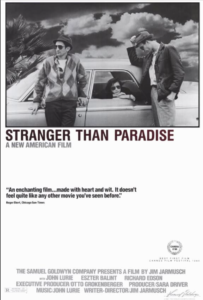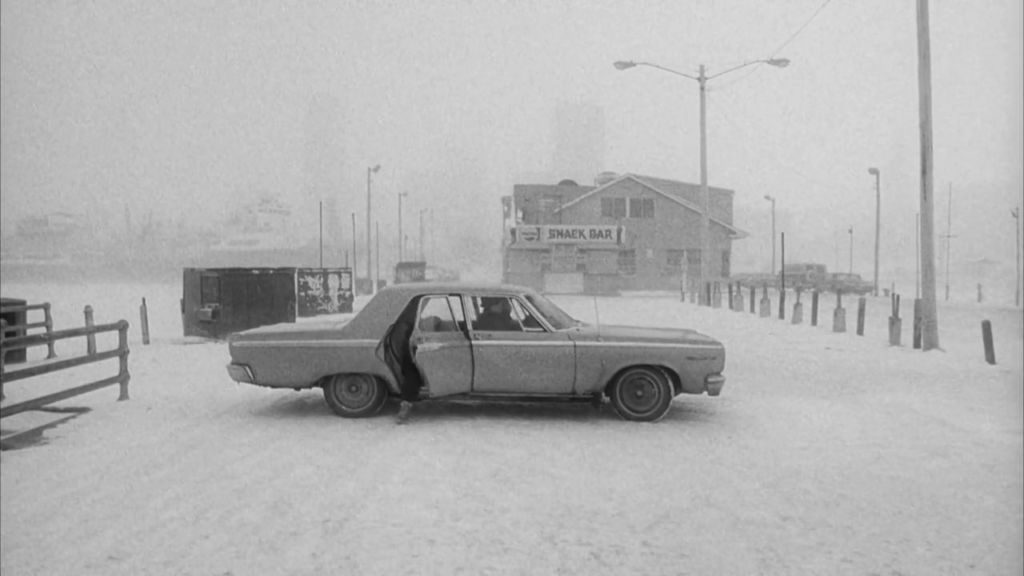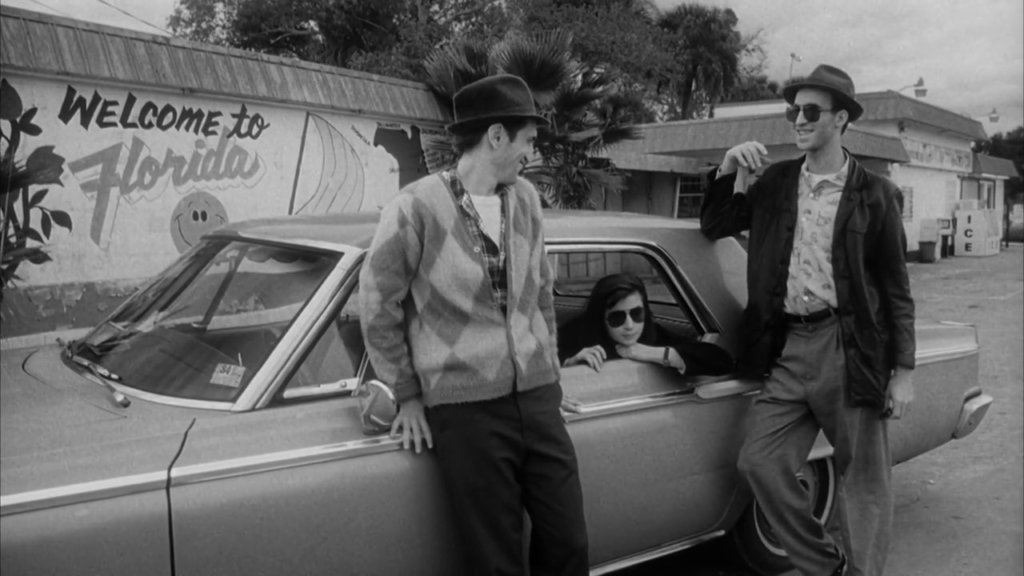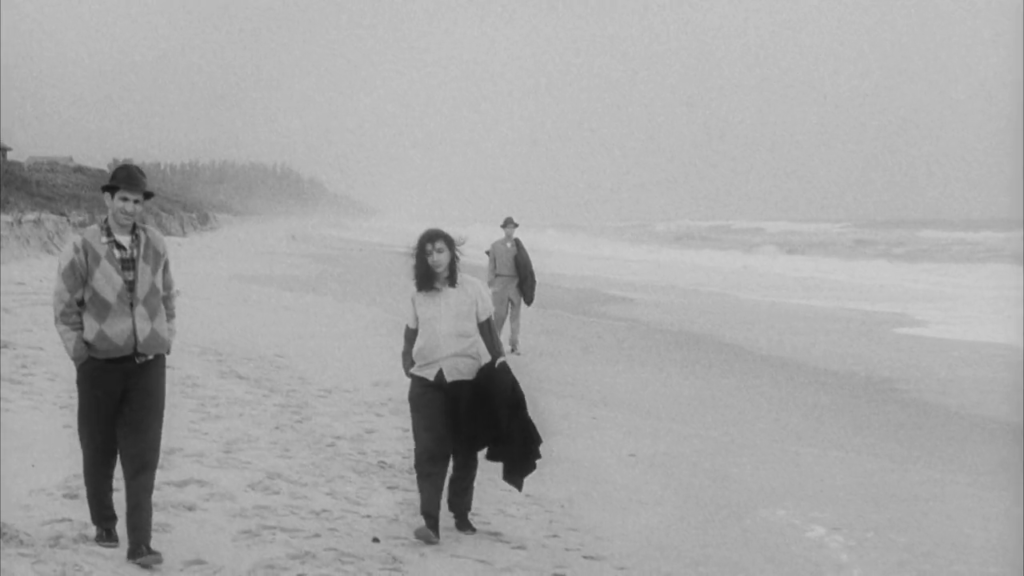Stranger Than Paradise (1984)
“It’s funny — you come to someplace new and everything looks just the same.”
|
Synopsis: |
|
Genres, Themes, Actors, and Directors:
Response to Peary’s Review: Peary acknowledges that “at first the picture is jarring because nothing happens,” and “you won’t understand why it has received such critical praise.” But he notes that “soon you realize the humor comes from the fact that these people are incapable of breaking free from their boredom.” He posits that “the dialogue manages to be funny, although the characters are completely deadpan in their delivery and say very little that is perceptive,” and he asserts that “the characters are hilarious — and real! — and the actors are terrific.” Sadly, I disagree with Peary’s review — as well as those of numerous other prominent critics, who seem to be uniform in their praise of this “groundbreaking” indie flick. J. Hoberman, for instance, writes:
I believe Stranger Than Paradise is a case of a movie being very much of-its-time. When I first watched it as a teenage film fanatic, I vaguely remember being blown away by its daring and innovative deadpan style. Now, to be honest, I have no tolerance for it on any level (other than still appreciating Tom DiCillo’s cinematography). Why in the world would we want to spend time with any of these characters? Clearly I’m in polar opposition to Hoberman’s assertion that “Half the fun in Jarmusch’s leisurely paced film is just watching those palookas breathe”; nope. And why do we need a film to relentlessly show us how alienated Americans are from themselves, their environment, and any sense of greater purpose? The last thing I personally want to do is watch people drift from one meaningless “activity” to another, discovering that wherever you go in the interchangeable landscape of industrialized America — there you are. A few of the entries from the Four Word Film Review site seem most apt to me:
I’m not a Jarmusch fan, so clearly I’m biased — but I wouldn’t consider this must-see except for its historical role in indie American filmmaking. Redeeming Qualities and Moments: Must See? (Listed in 1001 Movies You Must See Before You Die) Links: |




One thought on “Stranger Than Paradise (1984)”
Agreed; not must-see.
I’m in particular agreement with this statement: [The last thing I personally want to do is watch people drift from one meaningless “activity” to another, discovering that wherever you go in the interchangeable landscape of industrialized America — there you are.]
When Jarmusch first hit the scene, people seemed to be falling all over themselves with praise. I didn’t get it. Of the number of films of his that I’ve seen in his subsequent career, there hasn’t been a single one that I’ve liked. (Admittedly, I’ve not yet seen the Peary-listed Jarmusch debut, ‘Permanent Vacation’.) Granted, that’s just my opinion – but it has always surprised me that someone who makes such lackluster films would be so intent on continuing on.